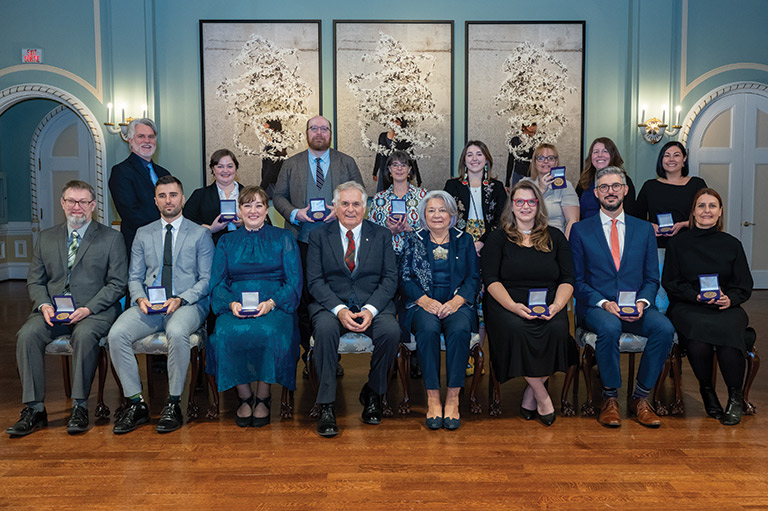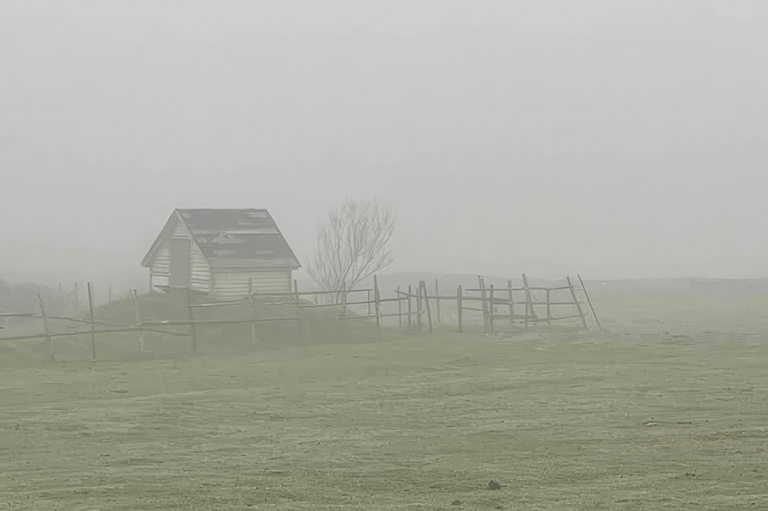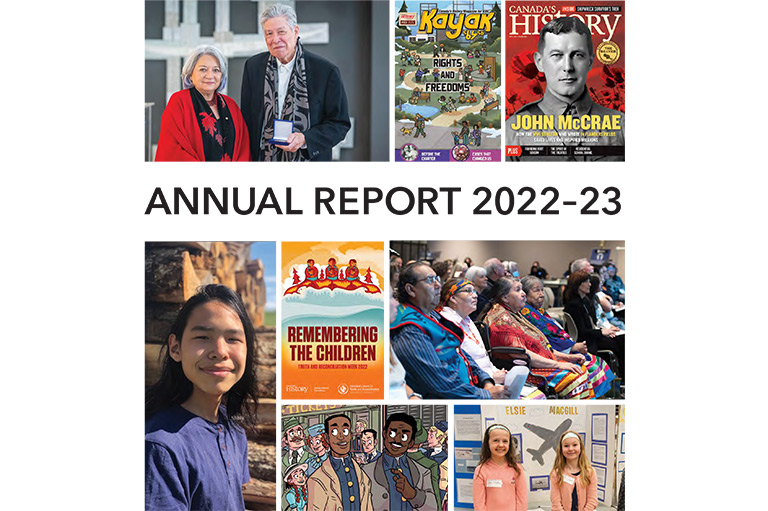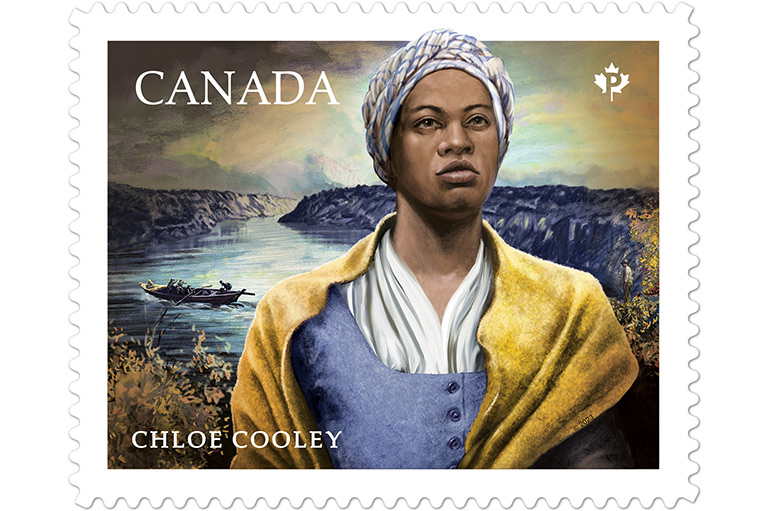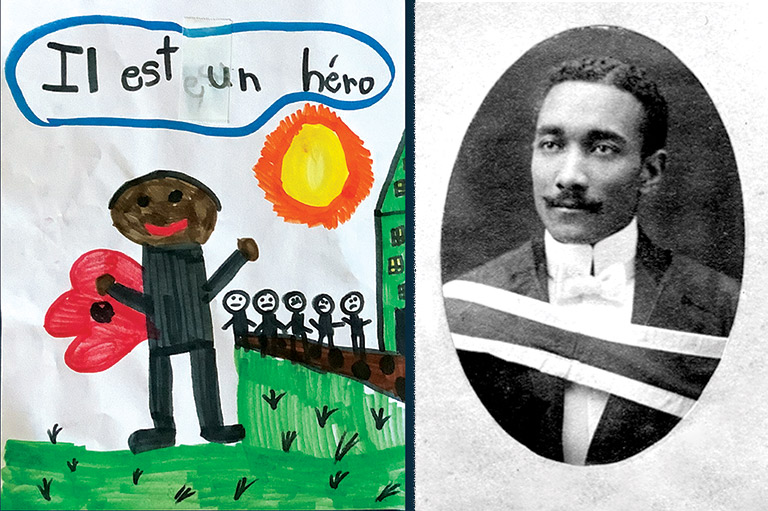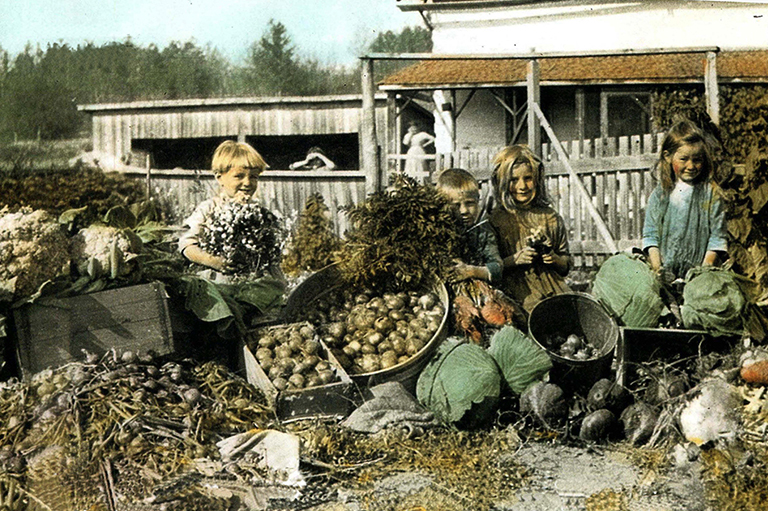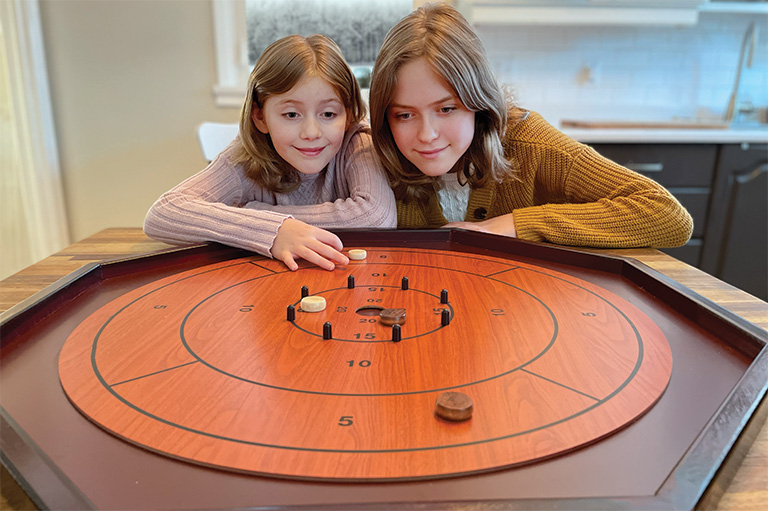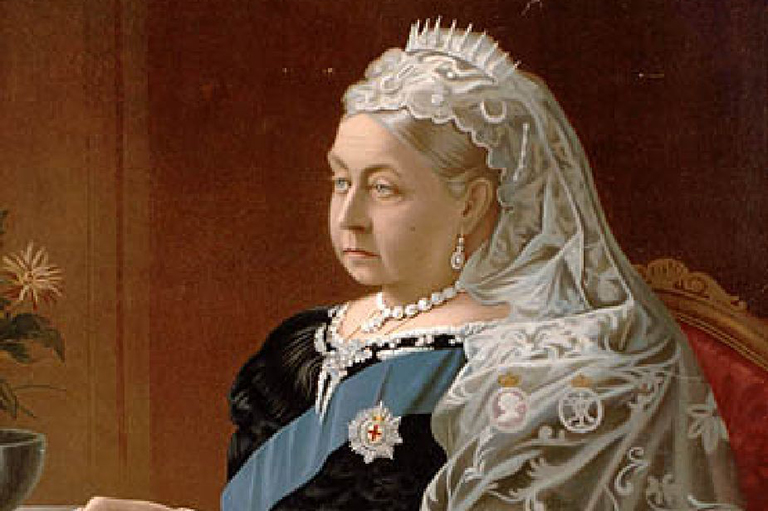Resounding History
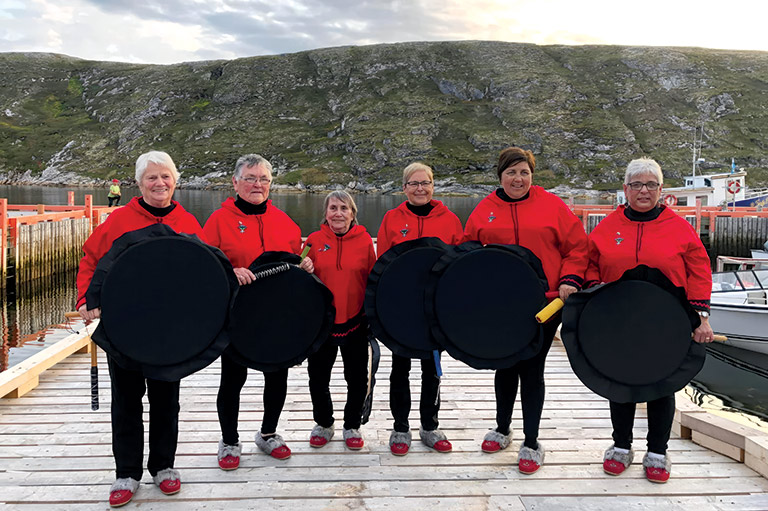
We recently received a call in the Canada’s History Society office from a woman inquiring about one of our award programs. I detected from her accent that she was from my home province of Newfoundland and Labrador, and she introduced herself as Judy Pardy from Cartwright, Labrador. She was inquiring about the John Bragg Award for Atlantic Canada — an award that empowers communities to share stories of inspiring people who have shaped Atlantic-Canadian history and society. And Pardy’s story is certainly inspiring.
Pardy is a member of the Sandwich Bay 50+ Club, which recently formed a drum circle to support residential school survivors in their community.
Two schools operated in the Cartwright area. The Labrador Public School operated from 1919 until 1928, when it was burned down by a fire started by students. A second school, Lockwood School, was built in the late 1930s and was in operation until 1964. It was one of five schools named as part of the 2016 Newfoundland and Labrador residential schools settlement agreement.
The Sandwich Bay Residential School Drum Dancers group formed in 2022 and has performed all over the province. When they appear, they raise awareness about residential schools and promote reconciliation through dance and song.
Although Pardy is not Indigenous, other members of the group are, and she said that learning more about the history of residential schools has helped her to understand why some members of her community continue to struggle — even generations later. The drum group helps survivors to reconnect with their culture and traditions. Susan Curl, an intergenerational survivor, told Pardy after the first time she drummed: “When I went home that night, it felt like a great weight was taken off my shoulders.”
As I hung up the phone and continued on with my day, Pardy’s story stuck with me. I was inspired by her group’s powerful response to the difficult legacy of residential schools. I was also reminded of how much of our history is gathered and shared at the local level. From our interactions with people like Pardy, we at Canada’s History Society know that people in our country are interested, engaged, and committed to researching and preserving the stories of the past.
We hope you’ll help us continue to share fascinating stories about Canada’s past by making a donation to Canada’s History Society today.
We highlight our nation’s diverse past by telling stories that illuminate the people, places, and events that unite us as Canadians, and by making those stories accessible to everyone through our free online content.
We are a registered charity that depends on contributions from readers like you to share inspiring and informative stories with students and citizens of all ages — award-winning stories written by Canada’s top historians, authors, journalists, and history enthusiasts.
Any amount helps, or better yet, start a monthly donation today. Your support makes all the difference. Thank you!
Themes associated with this article
Advertisement
With 7 uniquely curated newsletters to choose from, we have something for everyone.

